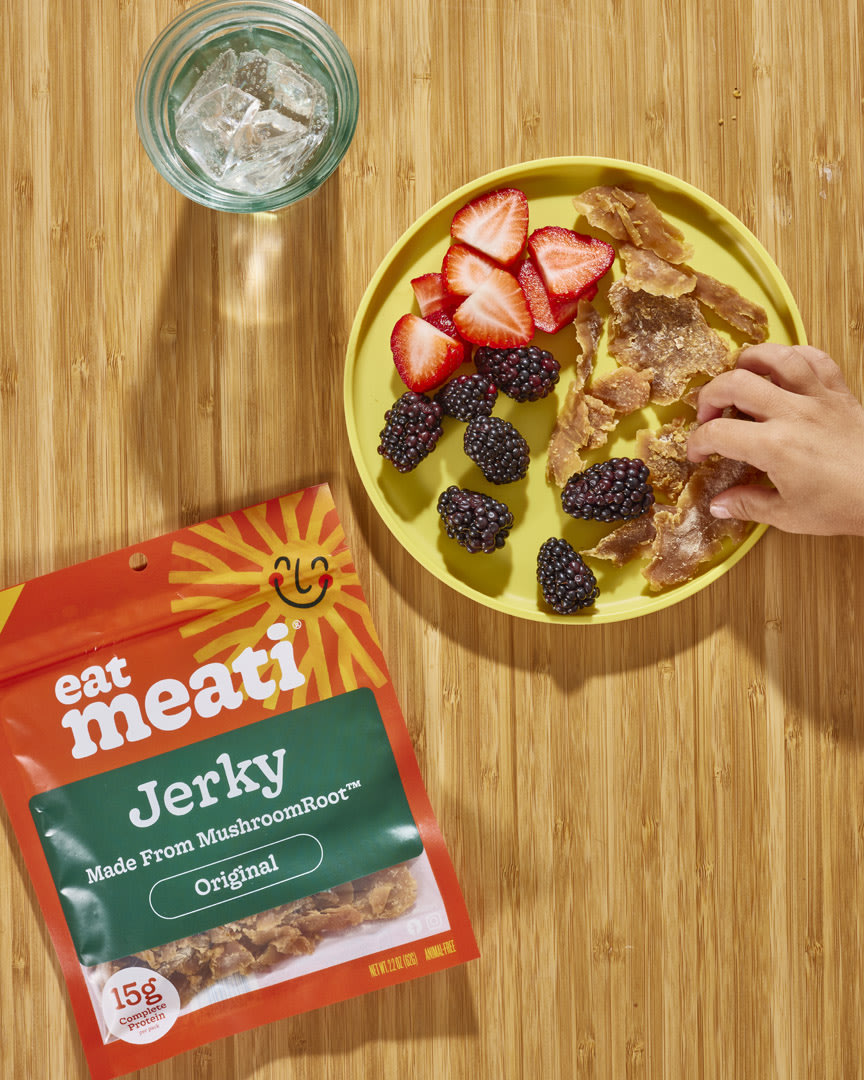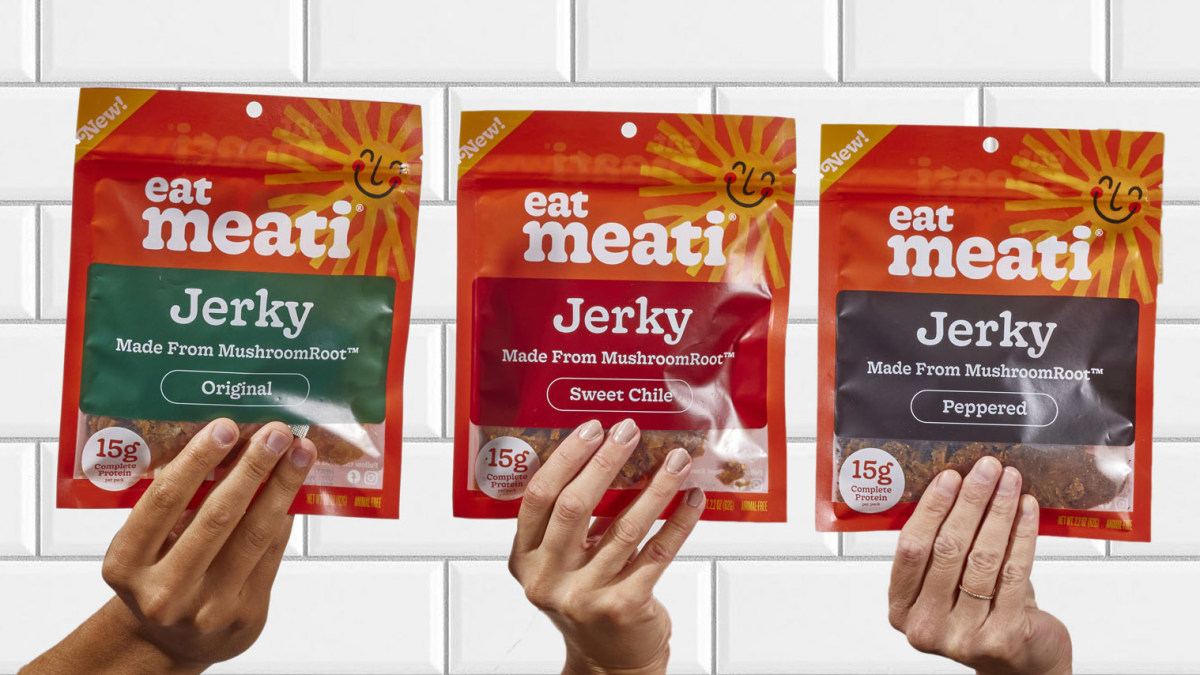[ad_1]
Mycelium may not be popular enough to be considered a hot ingredient, but in the alternative protein space, it’s fire. The biggest name selling myco-protein foods is Quorn, which you can find in the frozen aisle, but Boulder-based Meati is launching its “chicken” jerky that will compete in a far more ambitious category: snacks.
If you’re not keeping tabs on the snack category, it’s big business. Statista valued the snack food industry at $110.3 billion in 2023, a number that’s expected to grow annually by almost 4%. The Kellogg Company thinks it’s so valuable it created a spinoff company, Kellanova, solely for its snack business. Mondelēz International divested its gum business to better suit its “portfolio reshaping strategy” and efforts to be the “global snacking leader.”

[Photo: Meati]
Meati’s launch will join other ambitious plant-based jerky makers like Louisville Vegan Jerky Co, Pan’s Mushroom Jerky, and Beyond Meat, which partnered with PepsiCo to get its plant-based jerky onto shelves at supermarkets and convenience stores. Speaking of . . . how is that Beyond Meat jerky launch faring? Not good according to the company’s Q2 financial results.
Last March, Meati launched four SKUs of its mycelium meat, or what it calls “mushroom roots” at all Sprouts stores. (Mycelium is an underground fungus that can be grown at scale in big steel tanks.) Since then, it’s launched in Whole Foods Market, Giant, and Meijer–about 2,300 locations. This kind of scale will get the startup’s “Mega Ranch”—the name for its 125,000 square-foot production facility—positively humming.
The side effect of this expansion is that it creates a waste byproduct of trim and seconds that usually would not see the light of the day. That’s where a product like jerky comes in. “We’re very big on being sustainable,” says Debbie Downing, Meati’s senior manager of R&D innovation. “We use the trim to make the jerky—trim that doesn’t end up in the product—and we can be zero waste.”

[Photo: Meati]
There was little else to do other than choose flavors and spices. Like how much pepper the peppered variety gets. That’s where we revel in the minutia of food science. “Those particulates could fall off or come off in packaging,” says Downing. You want a pop of pepper and a visual pop as well. But you don’t want snackers coughing. (Original and Sweet Chile are the other two flavors.)
You know what Meati’s jerky doesn’t have? Nitrites, aka the bad stuff found in cheap packaged meat. Not only is the ingredient list clean but mycelium is a complete protein that also delivers fiber, zinc, and folate (or B9). This fits in nicely with Euromonitor’s 2023 snacking trends, which is that people want cleaner foods. (If you’re watching your sugar, it is a bit on the high side.)
The product will launch like all of Meati’s previous products: Direct-to-consumer first, then food service, then retail. “It’s a model we really like,” says Scott Tassani, Meati’s President and COO. “Early learning allows us to do some refinement.”
“We think this can be an enormous business for us,” he says. According to syndicated data from Tassani—from NielsenIQ and IRI, now Circana—“Our velocity is faster than all other alt protein brands.”
The former General Mills executive loves the new space he’s operating in. “We’ll be in 3,500 retail stores by the end of 2024,” he says, hinting at some expected retail launches. “We’re excited about the progress we’re making.”
While Meati’s jerky won’t be at convenience stores—because the channel probably put the beef in beef jerky—Tassani is hopeful the opportunity will come. Some of Meati’s consumers, he says, have never bought alt-meat before. “We’re bringing users to alternative protein because they’re excited about it.”
Because we’re curious, according to 7-Eleven, which notes that some stores carry close to 100 varieties of jerky (some of which are plant-based), the retailer’s most popular kinds are jerky sticks, followed closely by beef (see!) and bacon-style.
Dovetailing with Meati’s decision to sell its jerky online only is that consumers are now pre-planning their snack purchases. This means setting an alert on our phones, as one does, to make sure we don’t miss the sale. (In the past Meati products have sold out in minutes.)
After years of diligent research, I can say that few plant-based meats give me a reason to re-up (except for tofu and tempeh). In this case I will gladly fork over $4.98 (or thereabouts) for some Meati jerky. For now, it will set you back $40 at meati.com for three bags, shipping included. Go time is October 10 at 12 p.m. ET.
Whether from confidence or experience, Tassani seems sure there will be a payoff at the end of the rainbow. “The market in the U.S. is underdeveloped, and the feedback we get from commercial partners is that finally there is someone who checks the box on taste, nutrition, and delivers sustainability advantages.”
[ad_2]
Source link

Comments are closed.